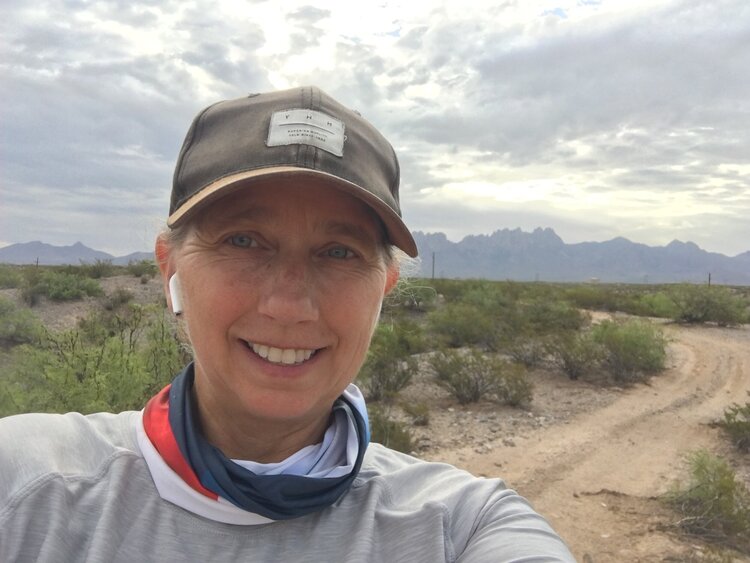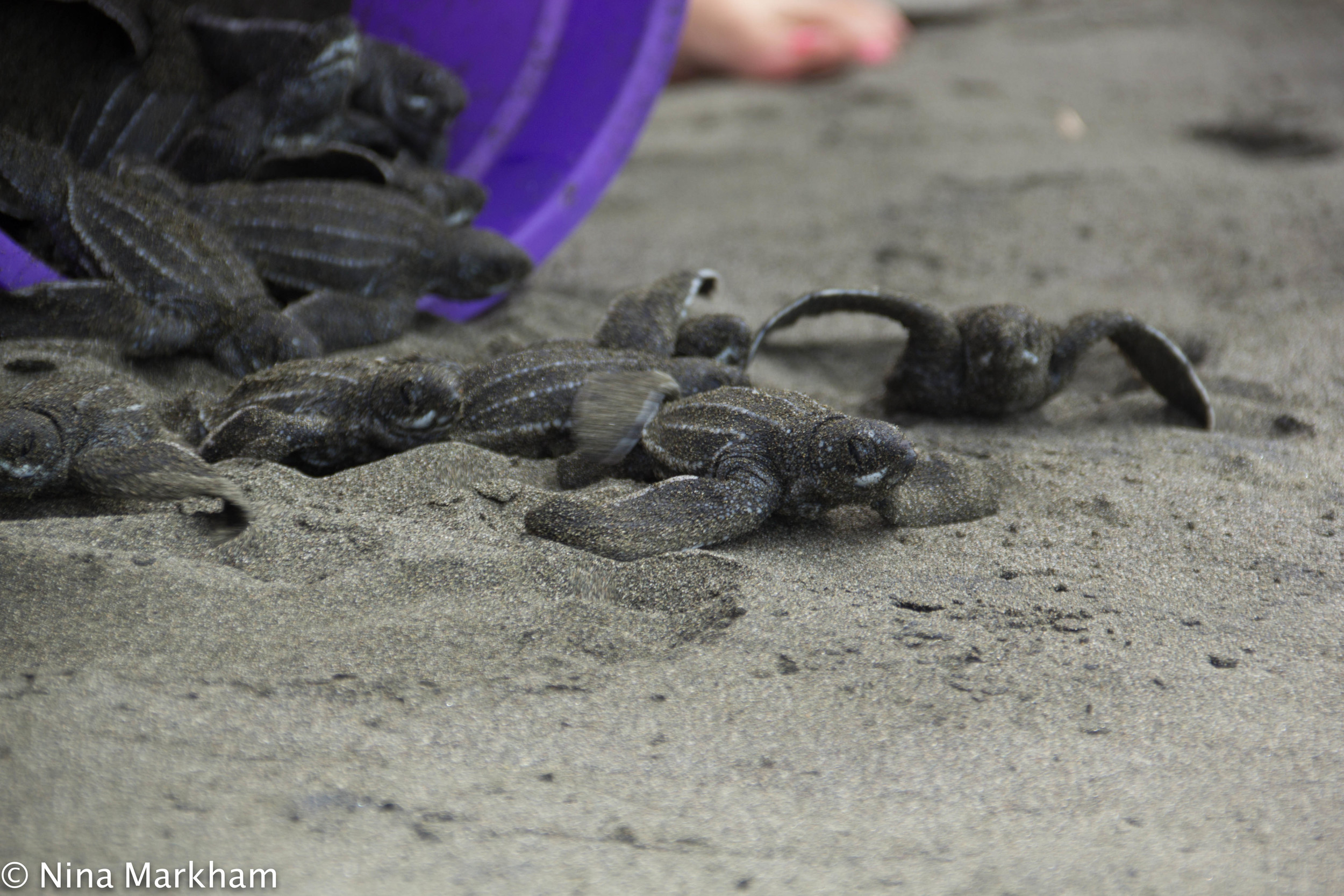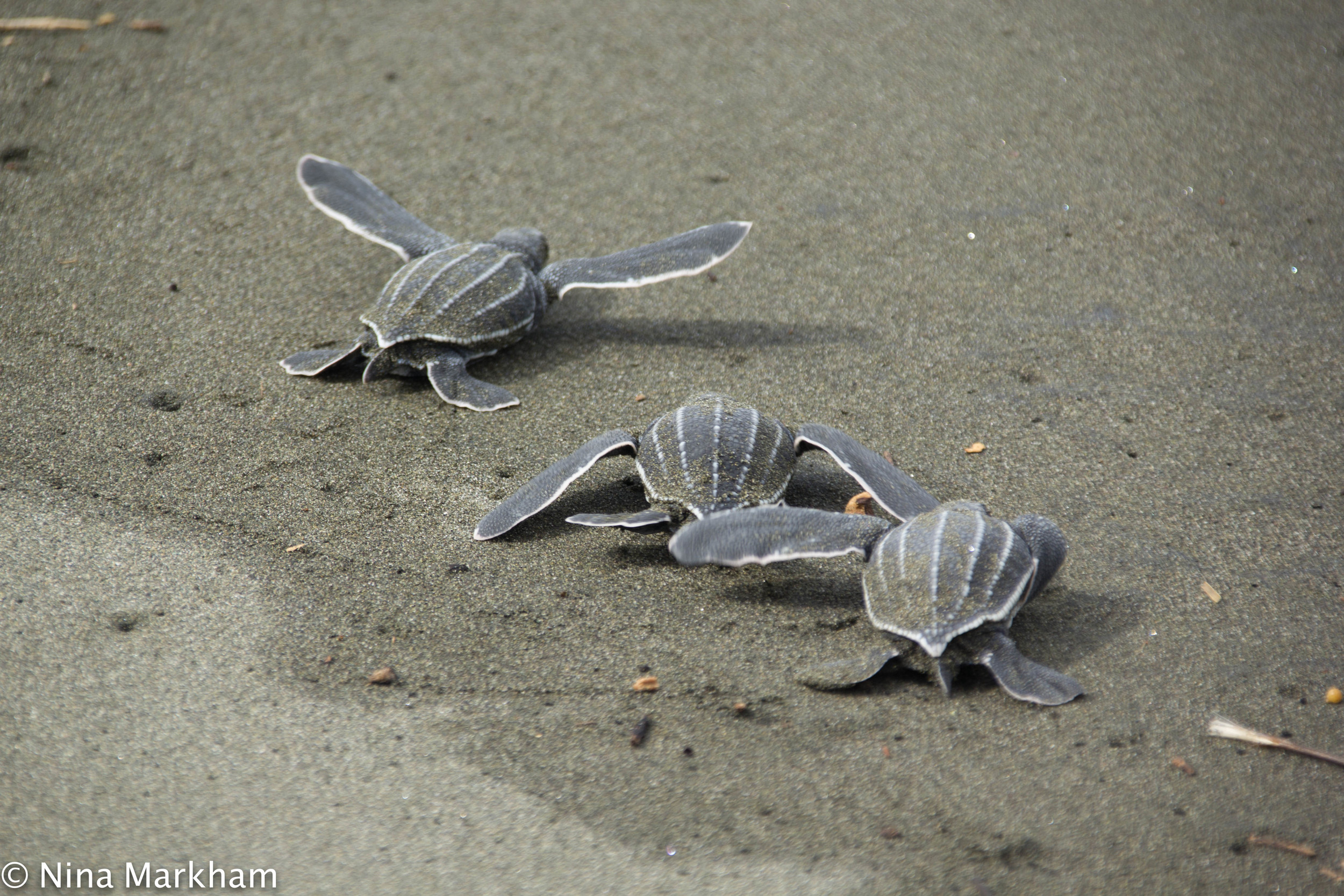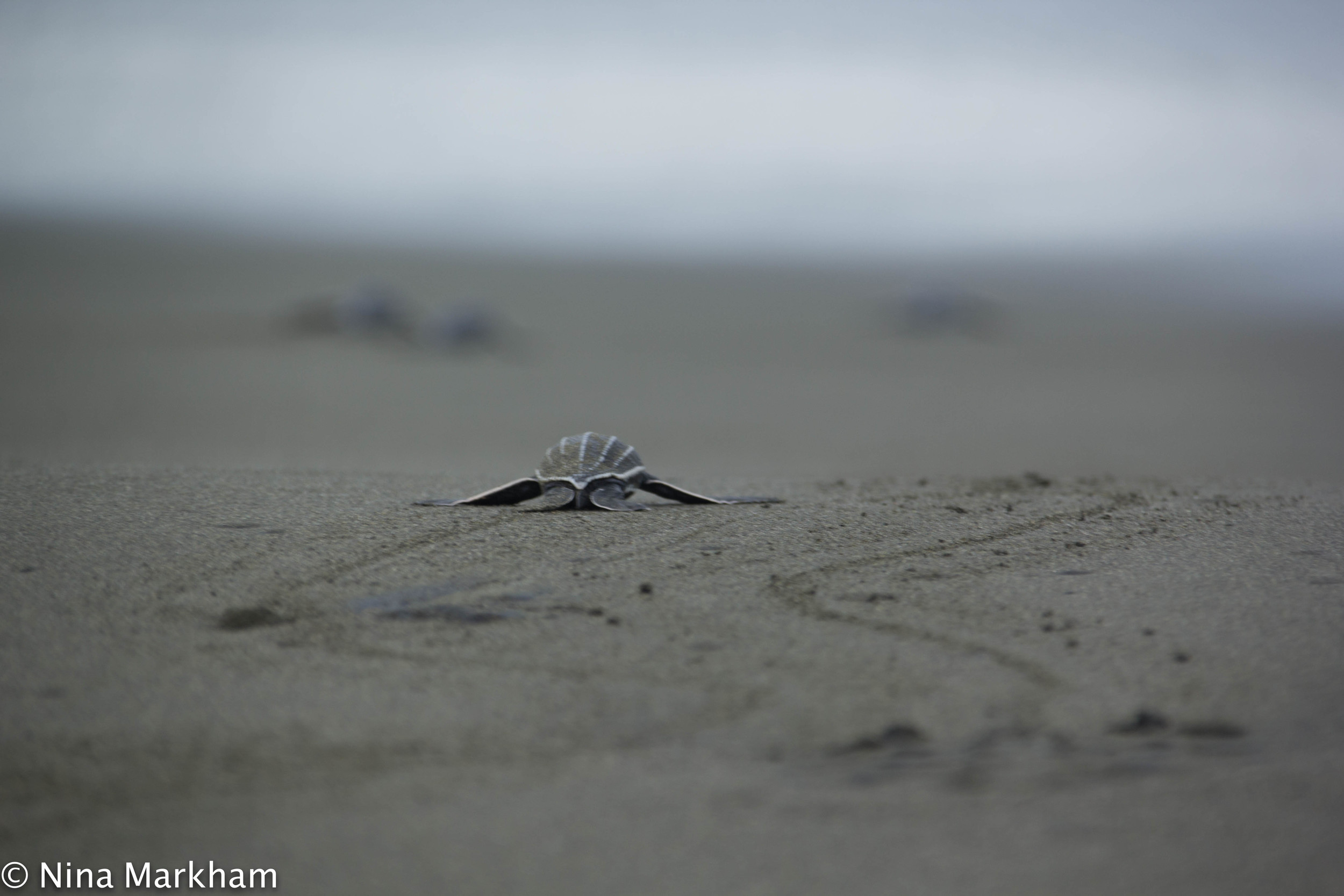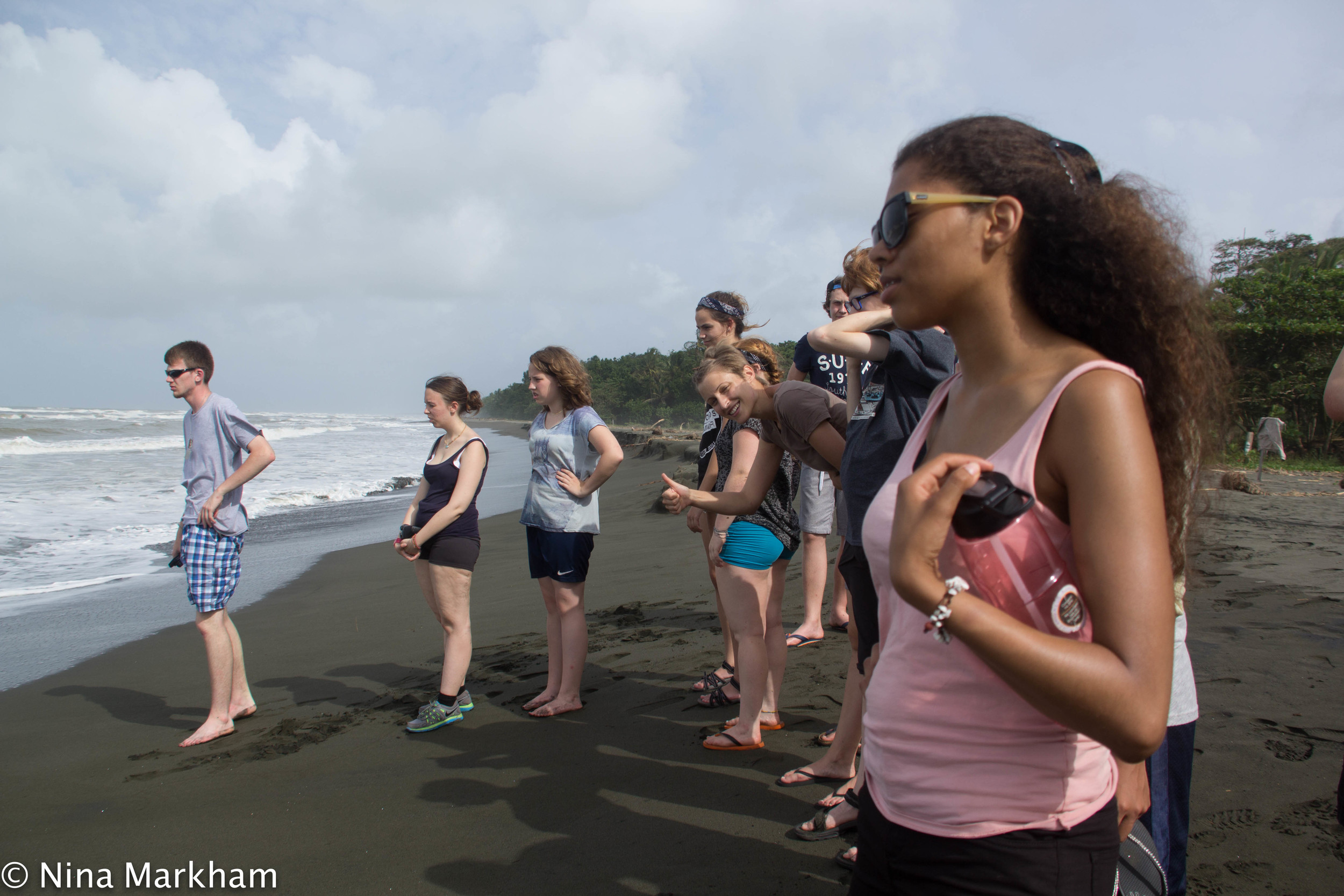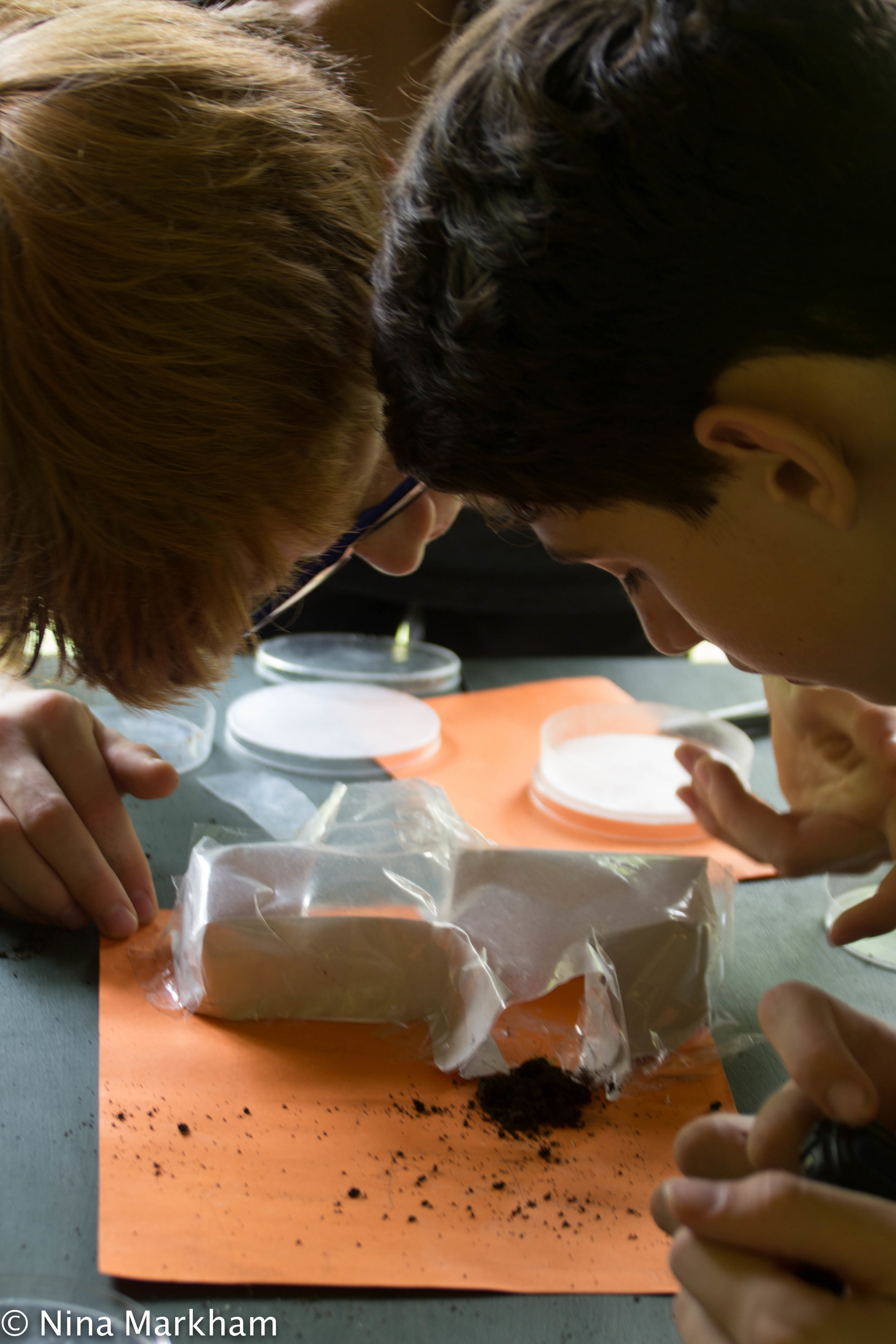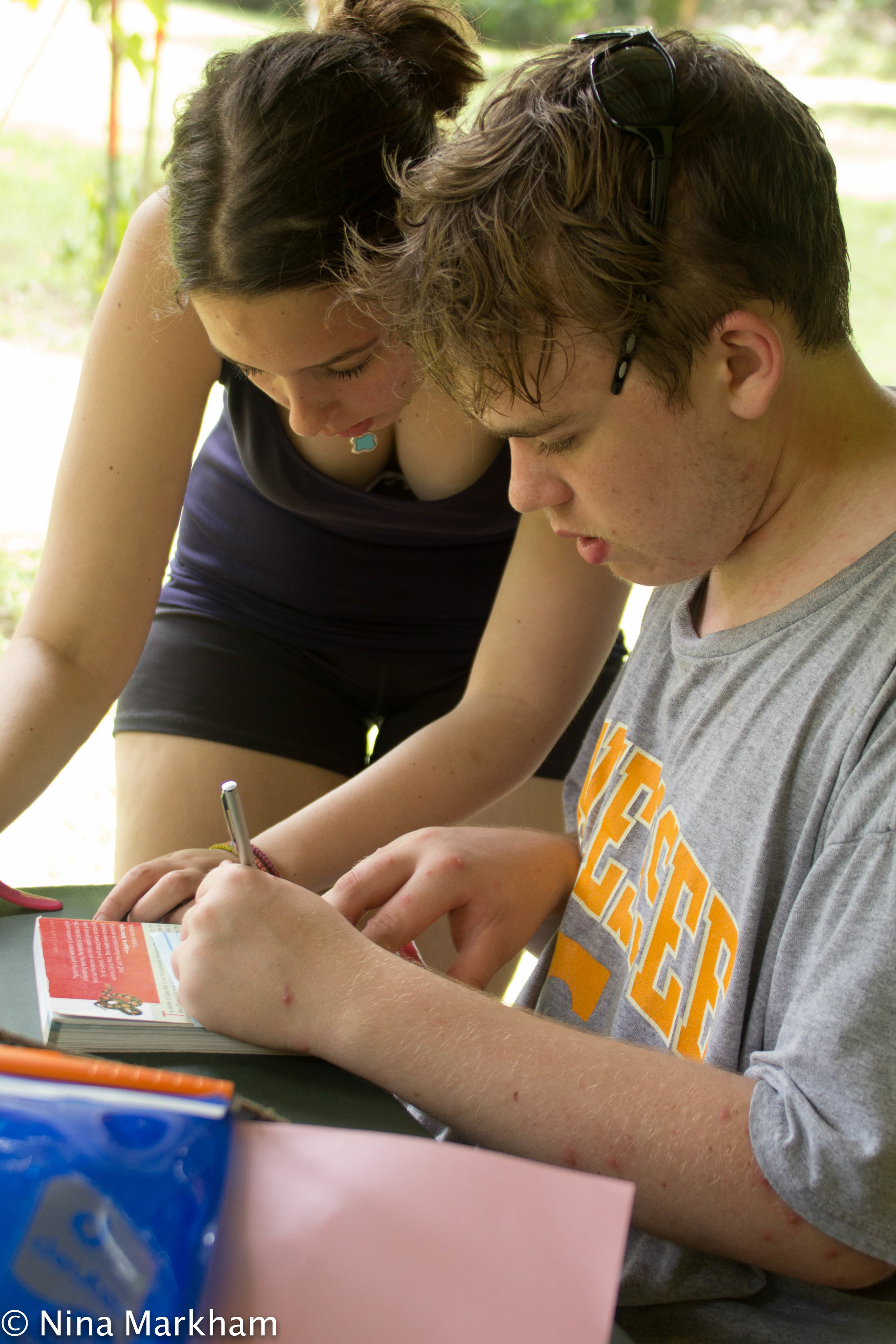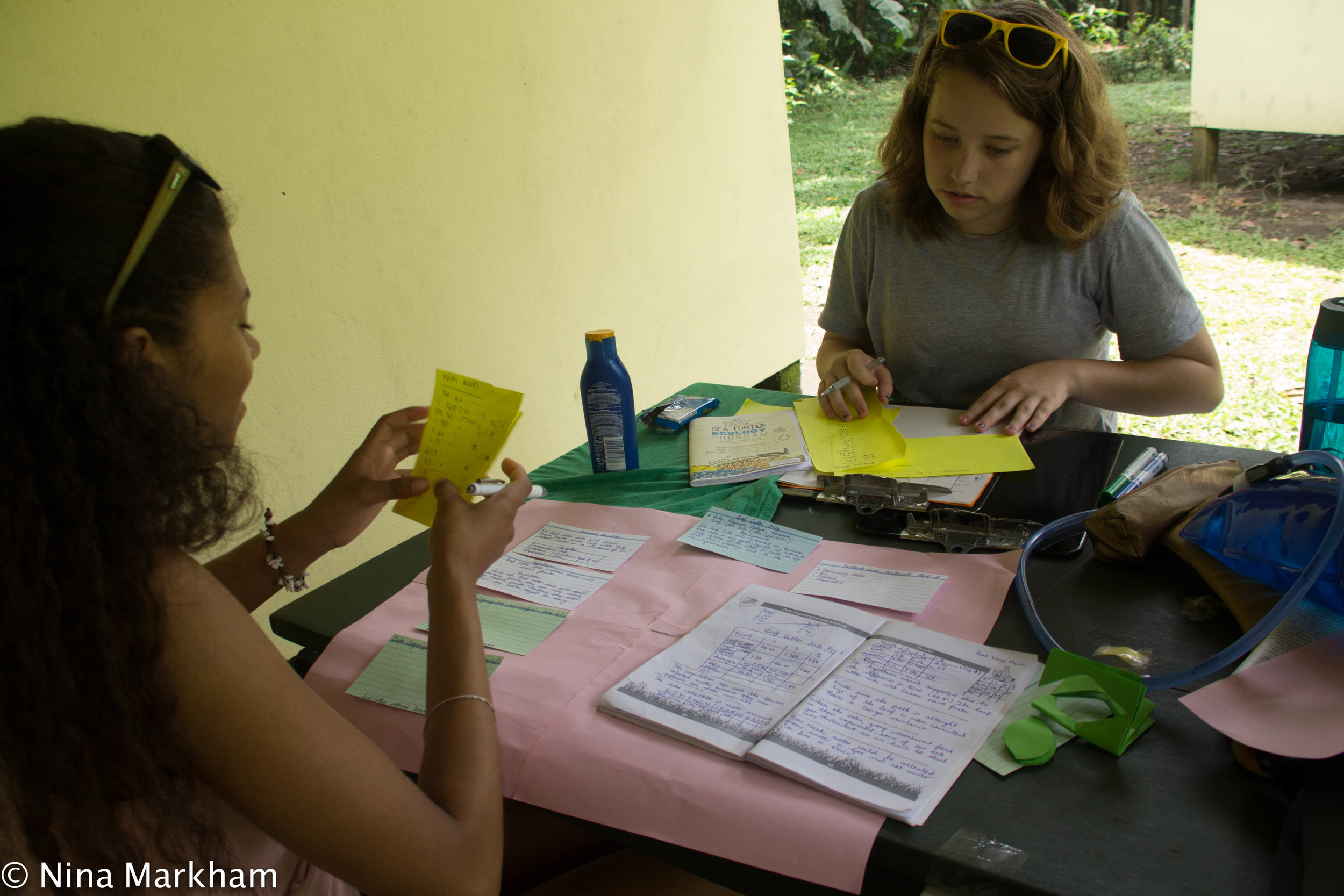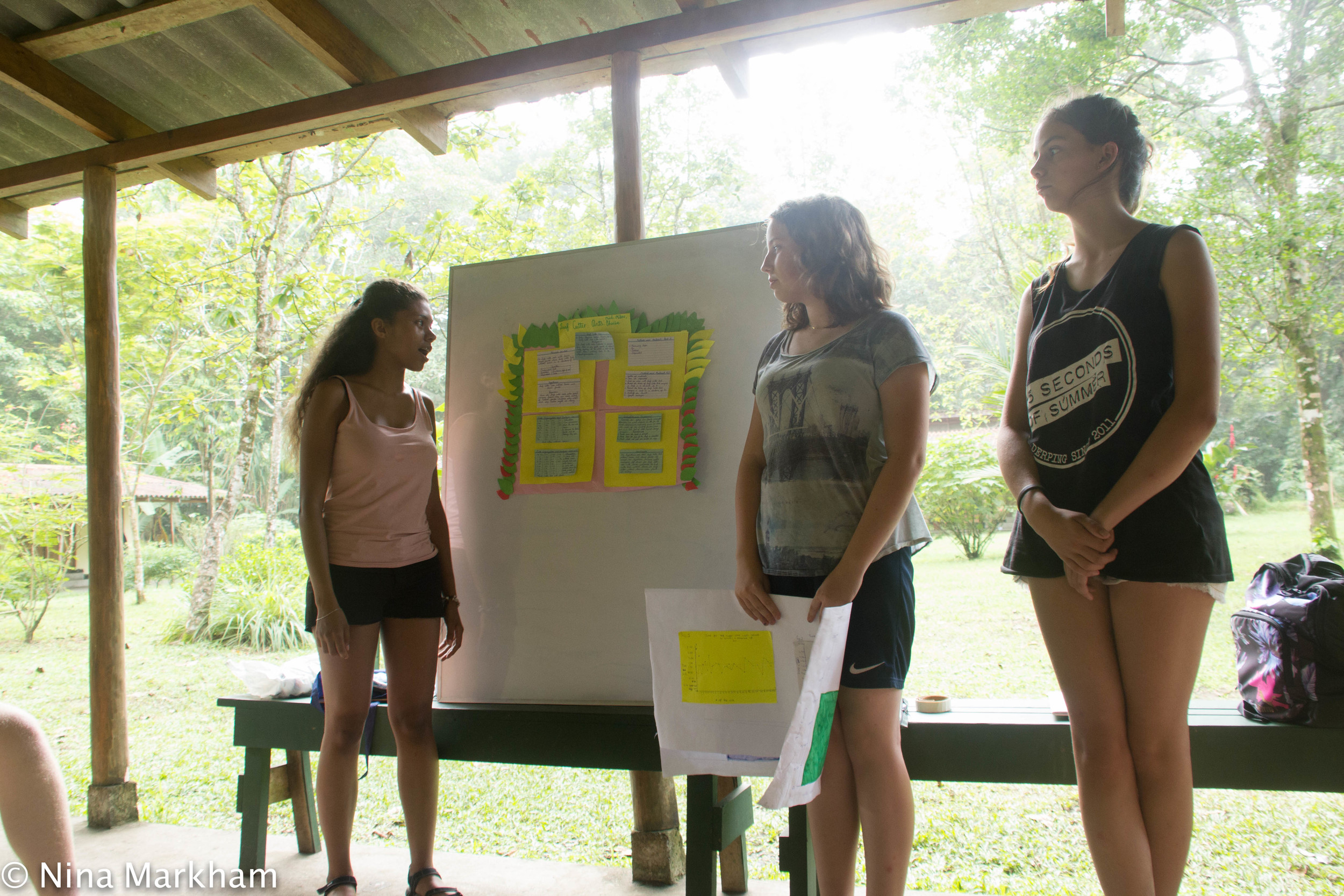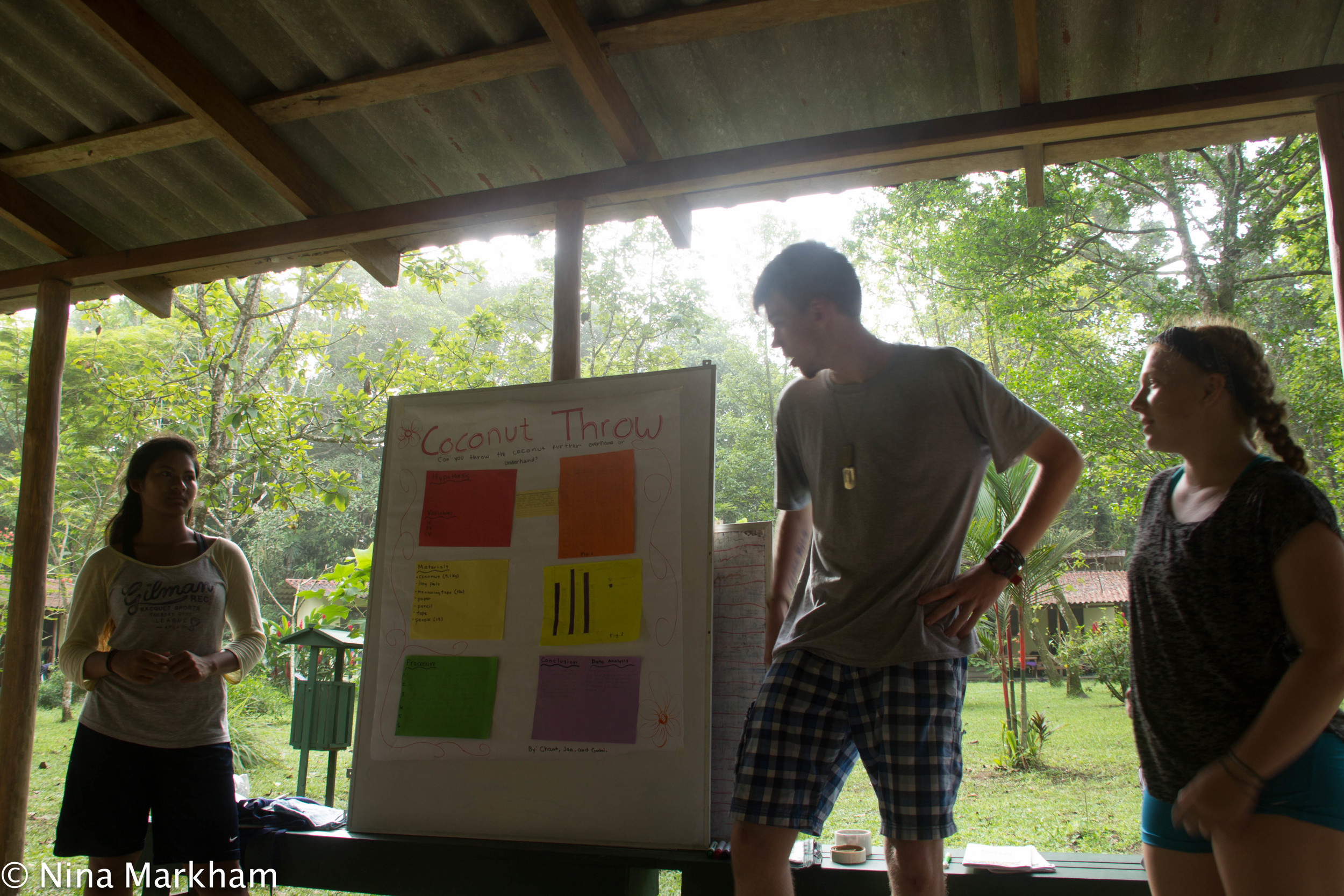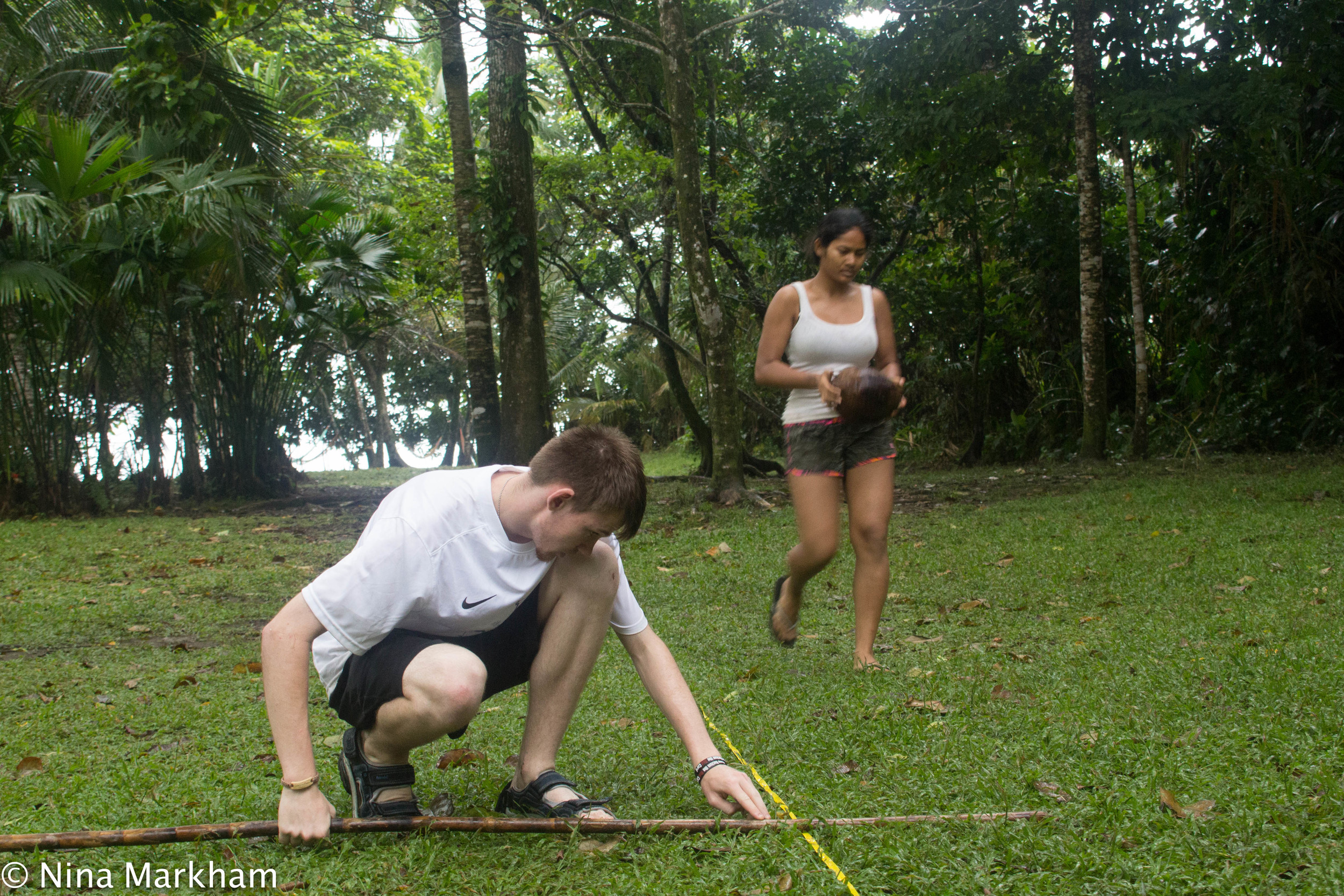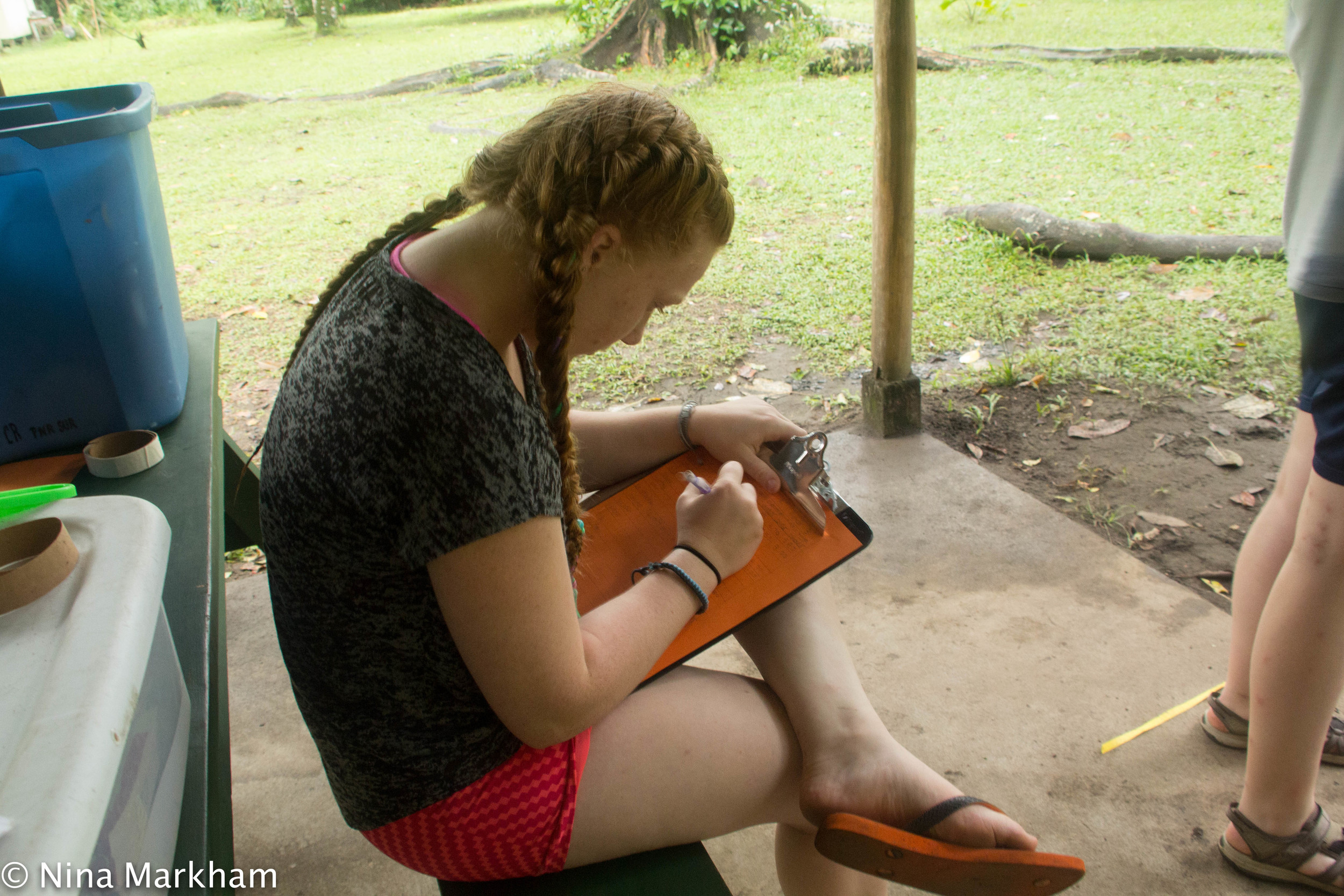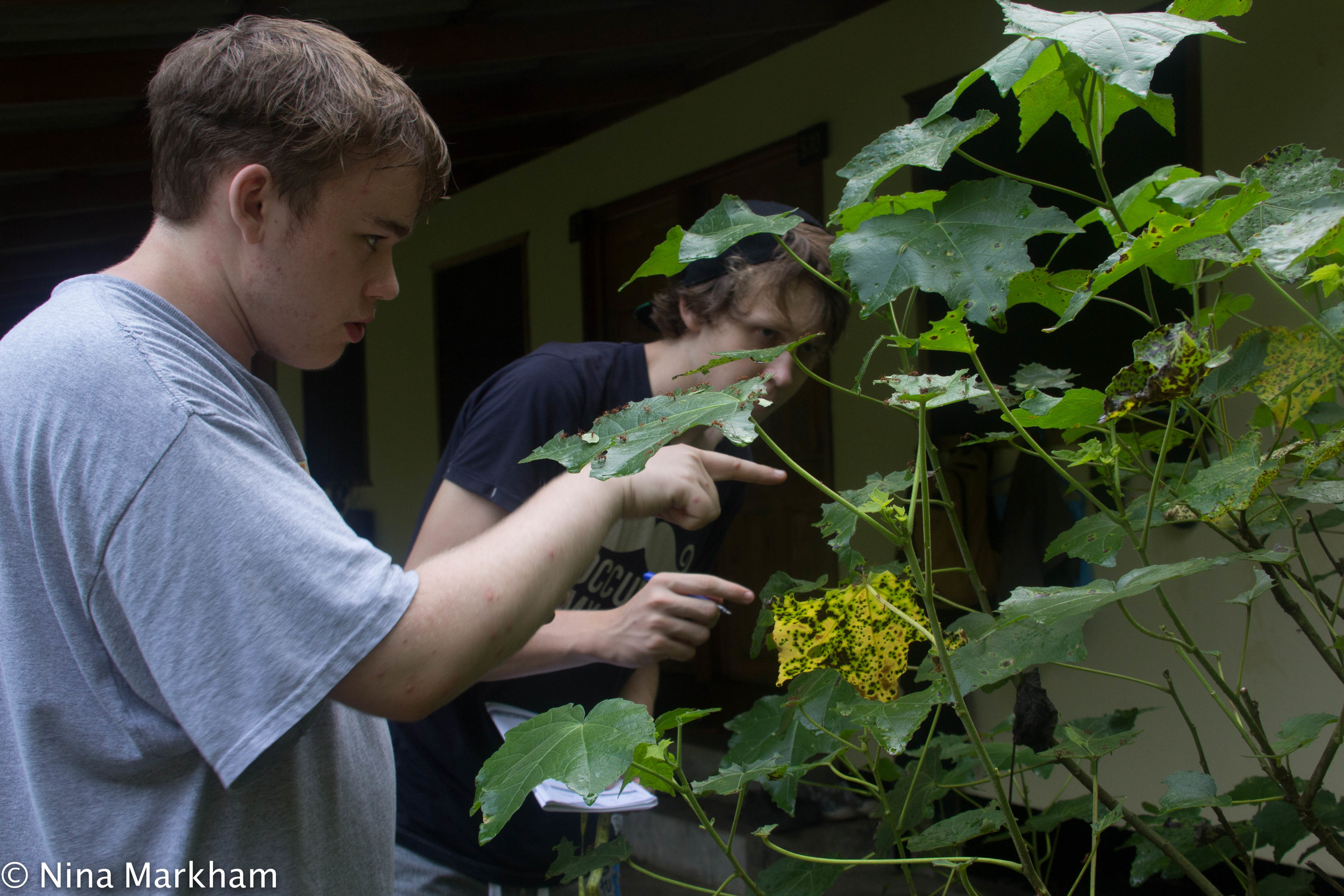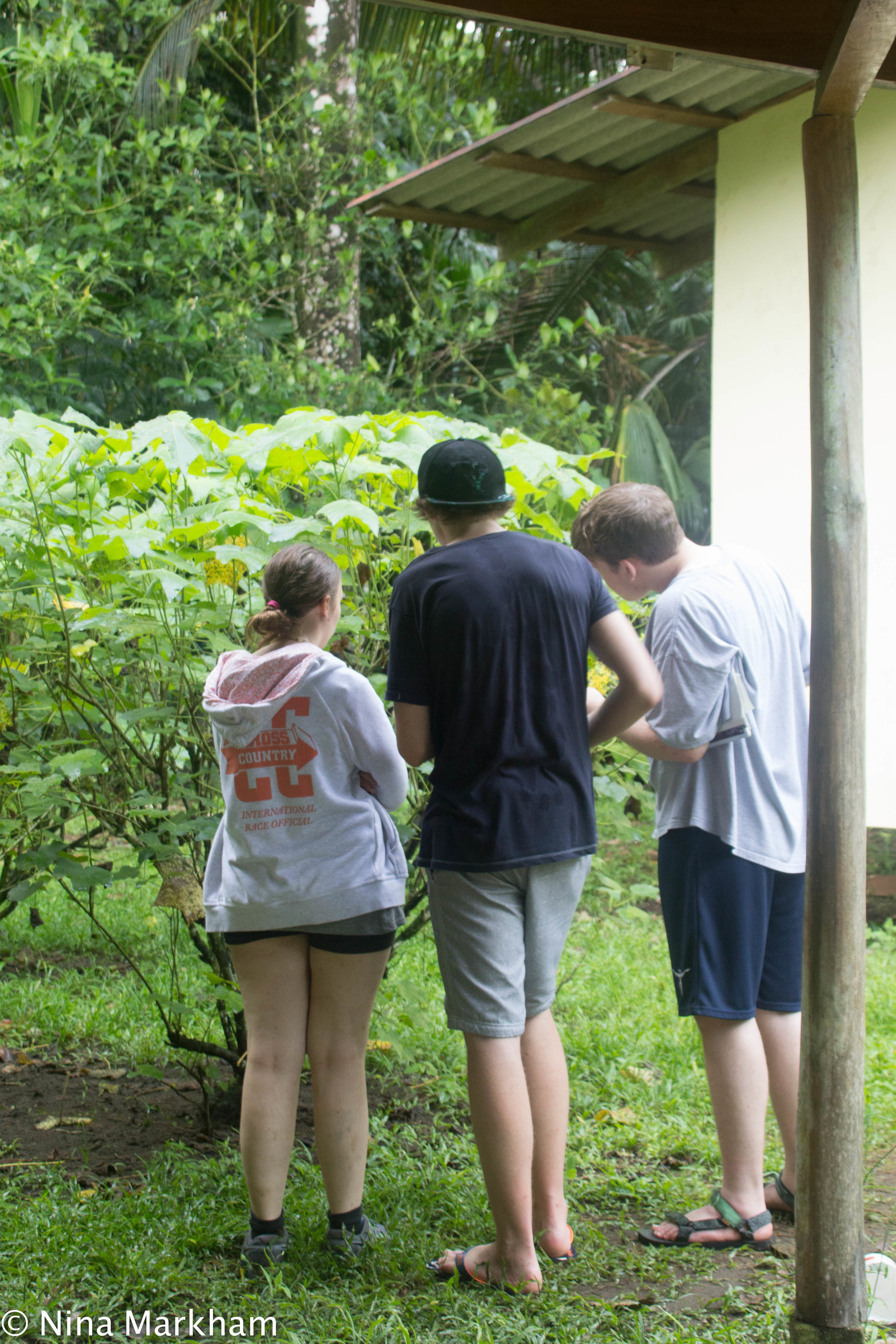Heads tip in wonder and discovery. Voices rise in heated debate over issues of sustainability. Fingers point and cries of excitement are uttered. Hushed awe. Quiet reflection is offered about humankind’s stewardship of earth. Friendships develop over nonelectronic games, shared experiences, and coping with humidity and insects. “Let’s save the world optimism” bubbles out of teenage minds and mouths.
That’s what Eva and I have seen. However, we also wonder what the students actually take away from an experience such as this. So, we asked them.
What was the best part of this trip and why?
- “Watching baby turtles go into the sea”
- “White water rafting”
- “The night hiking”
- “Playing soccer with the locals”
- “I strengthened old friendships and built new ones”
- “The places that we saw”
Every student experienced an aspect of this trip that struck a chord with him/her.
What difficulties did you experience on this trip and what did you gain from facing them”
- “We did not have electronics…I faced it by playing games with my friends”
- “Constantly being drenched in sweat and running out of clean clothes”
- “Dangerous animals…I figured out that they are actually really cool”
- “The darkness…I gained that if I just face my fear I will get to see amazing things like an owl eating its prey (a mouse)”
- “I had quite a hard time with giving up my phone, since I’m used to talking to my parents when I get scared…I learned that sometimes I can deal with things myself”
- “Facing my fear during the night hike…I gained the wonderful experience of seeing really cool animals”
Every student faced challenges and they all grew personally from them.
What have you learned from this trip?
- “I learned to work in a team”
- “I learned a lot about different animals species and how to conduct different types of scientific research”
- “I learned how to get good data for a good question”
- “How to adapt to new living conditions”
- “I learned to spend my money wisely”
- “I learned about biology and ecology”
- “The reason why certain species exist and how they function”
- “A surprise is always good!”
- “That the rainforest is really important to the environment”
- “The smallest things can have the greatest impact, for example, turning off our lights”
- “The culture of Costa Rica”
- “I learned a lot about sea turtles”
- “I learned about rainforests and leatherback turtles”
- “I learned a lot about conservation and about how we can make the world a more sustainable place like by reducing our water usage and only preparing what we can eat”
- “I have learned that electricity and clean running water should be used carefully…and they are luxuries that many people don’t have”
- “I have learned about sustainability a lot. I did not even have a clue before I came here”
- “I learned that if people care more about sustainability then the nature can be saved”
Every student learned from this experience: socially, culturally, scientifically, and environmentally.
Are there any personal practices in your life that you might change as a result of this trip?
- “I will take shorter showers” (the most common answer, several times over!)
- “I won’t waste food” (the second most common answer, several times over!)
- “I will also take cold showers to reduce energy usage”
- “Support local economies”
- “I will also tell my parents to cook less so we don’t waste as much food”
- I will try to become more sustainable: recycle more, turn off lights and I have some ideas to propose in school"
Would you recommend this trip to other students? Why or Why not?
100% of our participants recommend this trip to others and here’s why:
- “It is a great learning experience”
- “This trip is really an eye-opener”
- “It teaches a lot about the environment and about the animals and sea turtles”
- “It is an amazing experience and a once in a life-time opportunity”
- “It teaches people the importance of preserving our planet”
- “It also opens the minds of people to see how adaptable we really are to our environment. Conserve adapt, and be the change”
- “An amazing opportunity to focus on what is actually important: face to face interaction with friends, laughter through sound instead of emojis, conserving and practicing sustainability, and becoming more aware of the world around us”
- “You gain an appreciation of nature”
As Eva and I peruse through the student reflections on the plane ride home, we look at each other and say, “What more could we ask for?” Additionally, EPI has provided us with a wonderful curriculum, excellent instructors, an amazing program/itinerary, and an incredible support system in the country.
Indeed, this trip was worth it and we are already thinking of ideas, using EPI again, for next year!
If you're interested in knowing more about Ecology Project International (EPI), the group that organized our trip, click here.
leaf cutter ants at work
